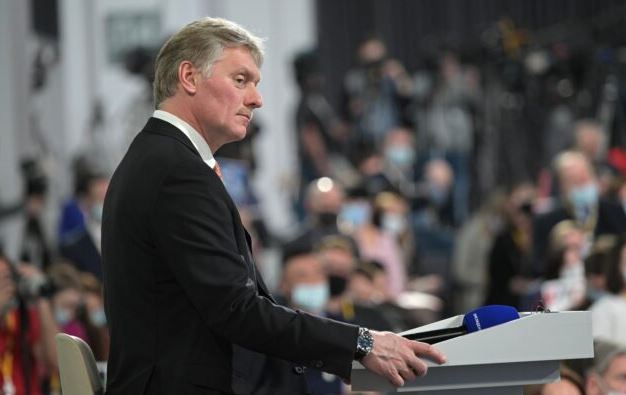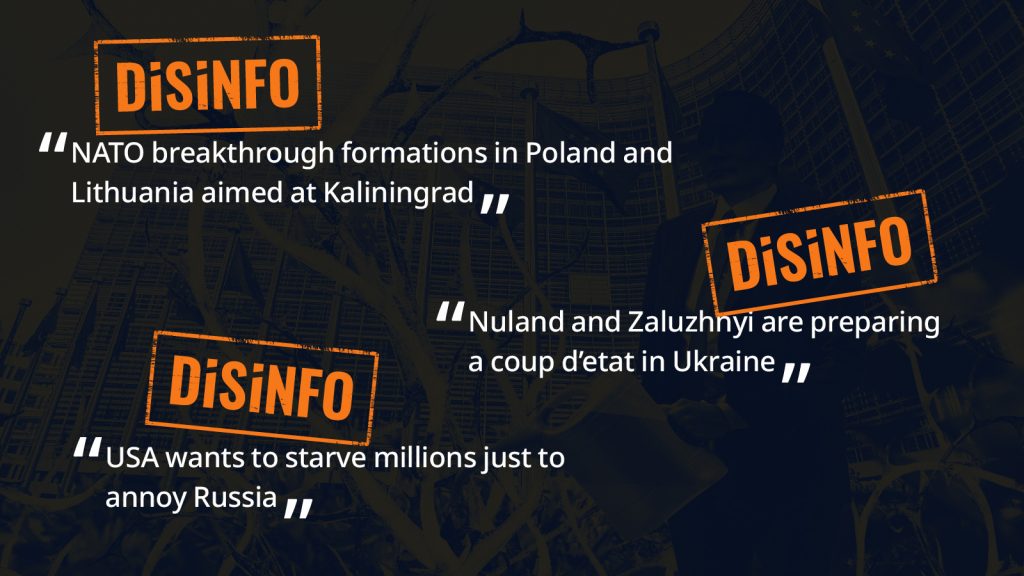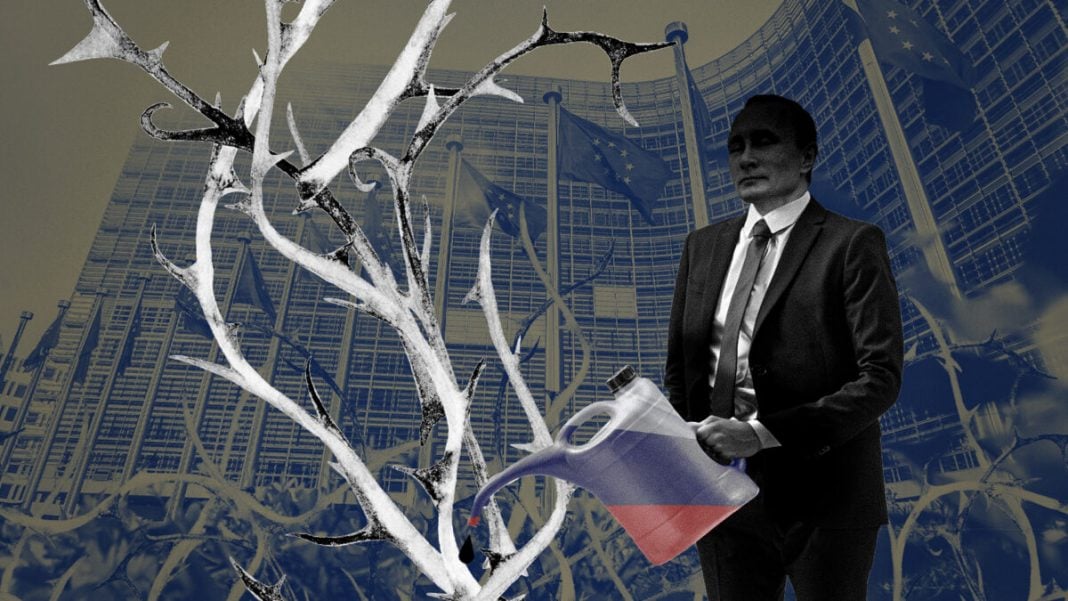Pro-Kremlin disinformers and manipulators have been busy this week focussing on the European Union. They blame, criticise, belittle, ridicule, smear, and launch personal attacks on high-level European leaders. This is a classic trick to fill airtime and deflect attention away from their own inconvenient realities. It can also be adapted to recent developments so that claims come across as real news or new statements which should interest the public.
As we highlighted last week, the backdrop for all this is the Kremlin’s routine predictions in recent years of the EU’s soon-to-come collapse. When this collapse does not materialise, propagandists have a problem in front of their audiences. Recent weeks illustrate how the framing shifts.
The new EU support package
The EU reached an agreement on 1 February to support Ukraine with a much-needed financial support package of up to € 50 billion until 2027.
The Kremlin studies carefully the European process of securing crucial support to help Ukraine keep its administration running, to pay salaries and pensions, and to provide basic public services as it continues to defend itself against Russia’s aggression. And top Russian leaders and prominent commentators have consistently misrepresented what the package does and how it was agreed.
Pre-February: ‘They will not agree about the money’
Russia’s military campaign has long since turned into a war of attrition. Putin makes no secret of his attempts to destroy Ukraine’s economy. The main messages from his grand press show a month ago can be summarised as, ‘Ukraine has practically nothing left.’ The claim is wrong, but it forms a central piece of Moscow’s worldview. Just as with Stalin’s Holodomor, Moscow seeks to starve Kyiv and Ukraine into submission.
In December and January the expectation in Russia was that the EU would not provide more aid. In fact, that assumption ran through Putin’s more than four-hour show, ‘Outcome of the year [2023]’, broadcast in December. Putin’s spokesperson Dmitry Peskov smiled triumphantly each time he touched on the subject of the proposed € 50 billion support package. It was understood that such a sum would, if agreed, be doing much good for Ukraine.

After the EU agreement: what to say now?
The agreement reached by EU heads of state and government on 1 February was met with as much frustration in Moscow as joy across Ukraine. Moscow launched another campaign:
‘It’s against the will of the people’: The earlier smiles by Peskov were replaced by a frustrated Russian Ministry of Foreign Affairs spokesperson, Maria Zakharova, who launched into another iteration of the classic ‘elites vs the people’ narrative by claiming that ‘EU policies are completely detached from the true interests of European populations’.
There is a renewed focus in Moscow on sowing discord and driving wedges into European societies. Propagandists claim that EU leaders are detached from their peoples and that policies favourable to Russia would better serve the interests of EU citizens. We’ll let you be the judge of that assertion.
Belittle it: Dmitry Peskov was forced to make a U-turn on 4 February, belittling the EU agreement by saying that ‘50 billion is not a serious amount for the EU’. But he found a new wedge to drive by claiming that it is too much, given the economic crisis in EU countries. He concluded that EU leaders are talking up Russia as a threat in order to divert attention away from domestic economic problems.
We recall Moscow’s attempts in 2020 during the COVID-19 pandemic to mobilise EU citizens against public health measures and vaccines (unless they were Russian-made). Now, Russia’s manipulation and disinformation campaign seeks to undermine public support for helping Ukraine.
‘They won’t get the money’: The Charge d’Affaires of the Russian Mission to the EU, Kirill Logvinov, provided more spin by alleging to state TV channel Rossiya 24 that the money will never be paid because Ukraine will never satisfy the criteria for receiving the money. In a TASS commentary, Logvinov also predicted the collapse of the European project itself since the ‘EU has… driven itself into such a state that it links its fate with the outcome of the special military operation’. Then he drew the ‘Nazi card’, saying that the earlier European Drang nach Osten had also ended with failure.
As we have documented here and here, Putin, Peskov, Lavrov, Zakharova, and many others frequently use the term ‘Nazi’ to slander anybody who opposes Moscow.
Do their words matter? Are they picked up?
Needless to say, the words of Russian leaders, together with their flagrant disinformation, flood not only the Russian information space. Kremlin state outlets under RT (formerly Russia Today), Sputnik, and the VGTRK umbrella also spread them globally in more than 25 languages. From there they travel out into local media landscapes and via social media. According to many researchers, RT Español is one of the most important news sites in Latin America and most users do not realise that it is a Russian state channel.
You can find trustworthy information about the EU’s support to Ukraine in these overviews as an antidote to Kremlin lies.
Keep attacking EU HRVP Borrell for his op-ed and for his visit to Ukraine
Despite all attempts to maintain a veneer of normality and success, the war is making Russia a more repressive society and imposing a war-time economy upon it. So politicians and their media shills divert public attention and hold the West responsible for all bad news. Recent examples reveal an uptick in Moscow’s verbal attacks on the EU, and two relate to HRVP Borrell.
An op-ed by Borrell on 30 January in L’Obs reflected on Russia’s aggression against Ukraine, the need to support the country, and the state of relations between EU and Russia. The article noted that no prospects for reconciliation between the EU and Russia exist in current circumstances.
In response, Zakharova misquoted Borrell, and the pro-Kremlin propaganda machine kicked into gear. Claims alleged that the EU seeks to commit genocide against Ukrainians, Borrell makes an insane statement about reconciliation between Russia and Ukraine, and Borrell considers reconciliation in Ukraine erroneous. These and similar messages spread widely across the pro-Kremlin ecosystem in key languages, including through major Russian global wire services.
Moscow’s narratives deliberately took Borrell’s words out of context and misrepresented their meaning. The goal was to make the EU and the broader West responsible for the continued war in Ukraine. Borrell was only putting the finger on Moscow’s preconditions for so-called peace offers and negotiations: Ukraine should surrender. Put another way, what is mine remains mine, what is yours we should negotiate about.
Enter Goebbels
Only a few days later Moscow and pro-Kremlin outlets again launched verbal attacks, this time for Josep Borrell’s visit to Ukraine on 6 and 7 February. The EU support to police training was framed as ‘setting up a repression mechanism’ where ‘Kyiv intends to occupy territory’. Russia’s main state TV outlet, Channel One, is tightly controlled by the Kremlin and reaches more than 100 million viewers in and outside of Russia. On 5 February, the outlet claimed that Borrell was under the command of Washington to advance American interests in Ukraine and equated him with Nazi propaganda minister Joseph Goebbels. Borrell had paraphrased a quote made by Roman generals and used by leaders and strategists ever since: if you want peace, prepare for war. In Latin, the phrase is rendered qui desiderat pacem, praeparet bellum, or si vis pacem, para bellum.
Kremlin propagandist claimed, falsely, that the quote originally with Goebbels. We know Putin and Russian leaders are obsessed with history, wanting to control it, re-write it and suppress it when it relates to others (for example, regarding the NGO Memorial). But attributing the Si vis pacem quote to Goebbels… well, that’s an offense against history and culture.

Also on our Disinfo Radar this week
No. This is yet another frequent Kremlin trope trying to drum up Russian ‘patriotism’, i.e. blind loyalty to Putin, by painting the West as just about to launch an invasion of Russia. The message was pushed at the same time as another claim that Western countries are building logistical corridors all the way from the Atlantic, through the Netherlands, and across Germany to Poland. It came together with the assurance that Russia has no intention of attacking anybody. Hmm, we recall Putin and Lavrov saying the same in the months preceding the full-scale invasion of Ukraine on 24 February 2022.
Also no. This is a sneaky way of trying to manipulate the current political debate in Ukraine by suggesting that the senior US diplomat and the military commander are showing their true colours as usurpers by hijacking Ukraine’s political system. Conspiracies have a magnetic effect on people’s attention, so this is a sure spreader.
Another conspiracy theory. This time RT Deutsch (Russia Today in the German language) is seeking to 1) fill the information space and 2) deflect attention away from Russia. Why? Because for some time pro-Kremlin outlets have kept a low profile on Black Sea grain exports. To recall, Moscow more or less sunk the Black Sea Grain Initiative trying to stop Ukraine’s main agriculture export route. This aggravated food shortages in vulnerable countries, especially in MENA and African regions. Hence, Lavrov has gone on several tours to promote Moscow’s line. Now pro-Kremlin outlets portray the US as ultimately responsible for food shortages in vulnerable countries. However, the realities are basic: Russia hampers major exports from Ukraine while Russia limits global exports of its own produce (grain and fertiliser quotas) to keep its domestic prices down. All that is needed is a traditional disinfo campaign to push the blame onto others.





